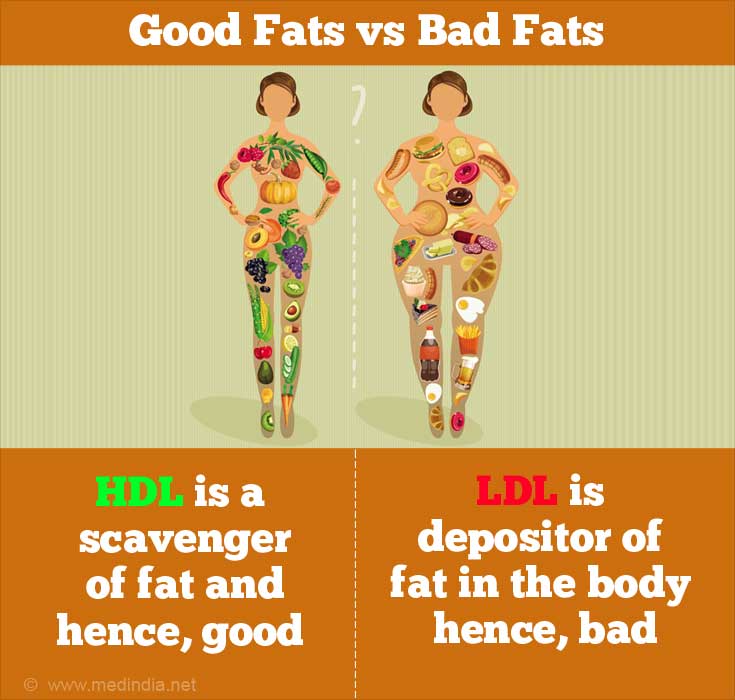- Understanding Blood Cholesterol - (https://med.libretexts.org/Courses/American_Public_University/APUS%3A_An_Introduction_to_Nutrition_(Byerley)/Text/05%3A_Lipids/4.5%3A_Understanding_Blood_Cholesterol)
- Lipoprotein (a) - (https://labtestsonline.org/tests/lipoprotein-a)
- LDL subclass patterns and lipoprotein response to a low-fat, high-carbohydrate diet in women - (https://www.ncbi.nlm.nih.gov/pubmed/9108784)
What are Different Forms of Lipoproteins?
As mentioned above, lipids form lipoproteins to be transported in blood. Based on their densities there are different types of lipoproteins with different functions.
Low density lipoprotein or LDL or LDL-C - It is commonly known as “bad cholesterol” (or we can remember them as Lousy cholesterol!) contains a larger portion of Cholesterol and a smaller portion of protein hence it is low in density. Its function is to transport cholesterol from the liver into the cells for the purpose of carrying out various functions. LDLs deposit cholesterol in blood vessels, which can block the vessels leading to heart disease and atherosclerosis. High levels of LDL are associated with increased risk of heart and coronary artery disease (2Understanding Blood Cholesterol
Go to source). Based on the size of the particles of LDL they are divided into LDL-A and LDL-B. Where LDL- A is a large molecule and LDL-B is a smaller and denser molecule (8✔ ✔Trusted Source
LDL subclass patterns and lipoprotein response to a low-fat, high-carbohydrate diet in women
Go to source).
High density Lipoprotein or HDL – This is also known as “good cholesterol” and acts like a ‘scavenger’. Its function is to transport cholesterol from the blood to the liver, from where it is either excreted or reused. Hence HDL helps to keep the blood cholesterol levels low and reduces the risk of heart disease (2Understanding Blood Cholesterol
Go to source).

Lp (a)- also called lipoprotein a, is another type of carrier of cholesterol in blood. It consists of an LDL molecule and proteins- Apolipoprotein B- this is involved in the breakdown of LDL in the body, and Apolipoprotein (a) which is thought to prevent the breakdown of blood clots in your blood vessels. Overall Lp(a) promotes LDL to get deposited in your blood vessels and cause blockage. The amount of Lp(a) in our blood is genetically determined, therefore their levels remain constant throughout your life. Non genetic causes for an increase in Lp(a) are- low estrogen levels, low thyroid levels, nephrotic syndrome, chronic kidney disease and uncontrolled diabetes (5Lipoprotein (a)
Go to source).








